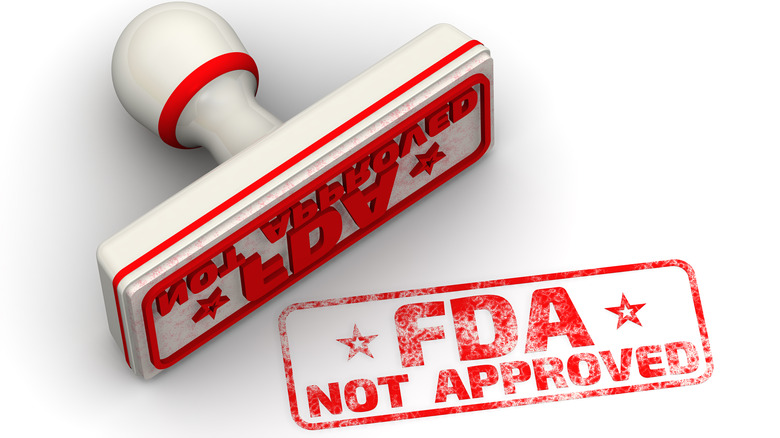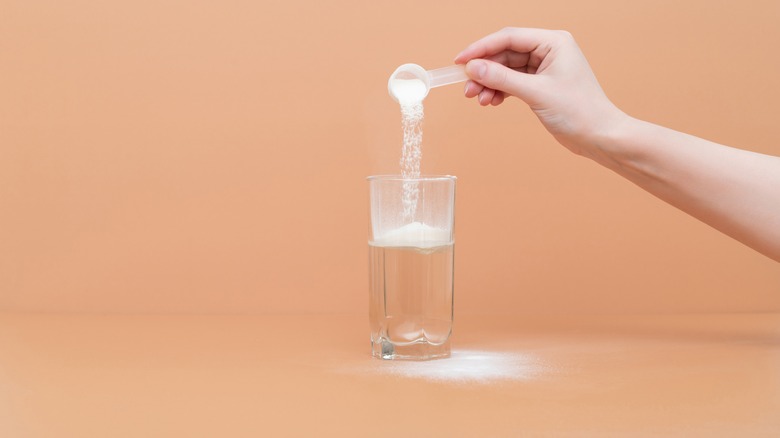The FDA Wants To Ban The Use Of Brominated Vegetable Oil In Foods
It's a familiar scene: You grab a can of soda and casually scan the label. Toward the end of the ingredients list, there's the slew of questionable additives you can't pronounce and would frankly prefer not to think about anyway. Now, state legislatures across America are giving these mystery chemicals a second look, and brominated vegetable oil (BVO) is on the chopping block.
BVO is an emulsifier that keeps flavored ingredients like oil and water from separating, which is why it's often used in diet sodas and citrus drinks. It's listed toward the end of ingredients labels because it's used in minimal amounts (15 parts per million or less), as approved by the FDA ... until now. On Thursday, the FDA moved to revoke the legislation that has previously allowed brominated vegetable oil in foods. The FDA already ruled that the additive wasn't "generally recognized as safe" back in 1970.
The issue is bromine, a known irritant to the nose, skin, stomach, mouth, liver, and heart. BVO is made by pairing vegetable-based triglycerides with bromine, which alters the molecular structure and creates a synthetic compound. When consumed enough, it can build up in the body over time. The additive may even be linked to neurological issues impacting memory, balance, and movement. In a study on rodents, BVO was found to have adverse effects on the thyroid. (It's also used as a flame retardant if that's any consolation.)
Catching up with the rest of world
Brominated vegetable oil has been banned in the U.K. since the 1970s and in India since the 1990s. Every country belonging to the European Union banned it in 2008, and Japan banned it in 2010.
Yet, even so, brominated vegetable oil is currently found in at least 90 products on U.S. supermarket shelves, including Walmart brand and Sun Drop citrus sodas. Gatorade, Coca-Cola, Pepsi, and Mountain Dew ditched it in the early 2010s. That was roughly a decade ago, and now, federal lawmakers are finally (maybe) catching up. Nothing has officially been ruled yet. The FDA will make a final decision in 2024.
If BVO is banned, manufacturers will be tasked with changing their recipes, which could launch nationwide reform in food quality. The movement has already begun at the state level. In October, California signed an act, effectively banning four common American food additives and undermining the FDA ruling. Per the Act, BVO, propylparaben, potassium bromate, and Red Dye No. 3 will be eradicated from California grocery stores by 2027.
The New York State Senate saw a similar bill earlier this year in March, prohibiting these four food additives plus titanium dioxide, a whitening ingredient also commonly used in cosmetics (coffee creamer, sunscreen, toothpaste). The European Food Safety Authority has already ruled that titanium dioxide shouldn't be an additive as it could lead to inflammation, neurotoxicity, and potentially cancer. The bill is currently in committee.

